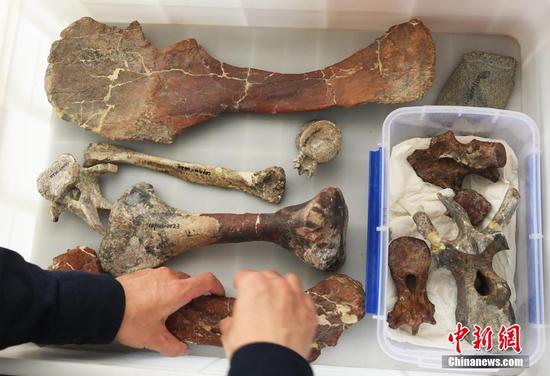An international team of researchers has found that follicle-stimulating hormone (FSH) may have led to a higher incidence of Alzheimer's disease (AD) among older women, providing a possible treatment target for the disease.
AD is a chronic illness that destroys memory and other critical mental functions. So far, the beta-amyloid protein, which tends to clump together to form plaques in the brain, and abnormal accumulations of a protein called tau that collects inside neurons are thought to play a significant role in the development of AD.
Statistics show that AD has a higher incidence among older women, and the number of female AD patients is twice as the male patients.
Based on previous studies, researchers from China and the United States brought up a theory that the activation of a neural pathway called C/EBPβ/AEP is the central process to the pathogenesis of AD.
They then screened for hormones that change drastically during menopause and activate the C/EBPβ/AEP pathway. The researchers identified FSH as a possible driving force of AD.
FSH plays an important role in sexual development and functioning. In women, FSH helps control the menstrual cycle and stimulates the growth of eggs in the ovaries. In men, FSH, whose level normally does not change very much, helps control the production of sperm.
The researchers said that around menopause, the FSH level in women increases drastically to more than 10 times than before, while the level of FSH in elderly men was about three times higher than years ago. The sharply-increased FSH can bind with the FSH receptors on the surface of neurons and activate the C/EBPβ/AEP pathway, leading to the abnormal change of beta-amyloid and tau proteins.
The researchers used AD mice with ovaries removed as the animal model of women in menopause to improve their theory.
They first blocked FSH to inactivate the pathway, which improves the cognitive abilities of the AD mice.
Then, the researchers knocked out the gene that controls the expression of the FSH receptor on the neuron to block the binding of FSH to the receptor, which also alleviated the cognitive dysfunction.
They also blocked the C/EBPβ/AEP pathway, which decreased the pathological changes of the mouse brain. And injecting FSH to the mice was found to promote AD development.
The findings have been published in the journal Nature.
According to the researchers, preclinical studies of using FSH antibody to treat AD are currently underway. They will also try to reveal the relationship between the AD risk gene ApoE4 and FSH in the future, exploring why women carrying ApoE4 are more susceptible to AD.


















































 京公网安备 11010202009201号
京公网安备 11010202009201号